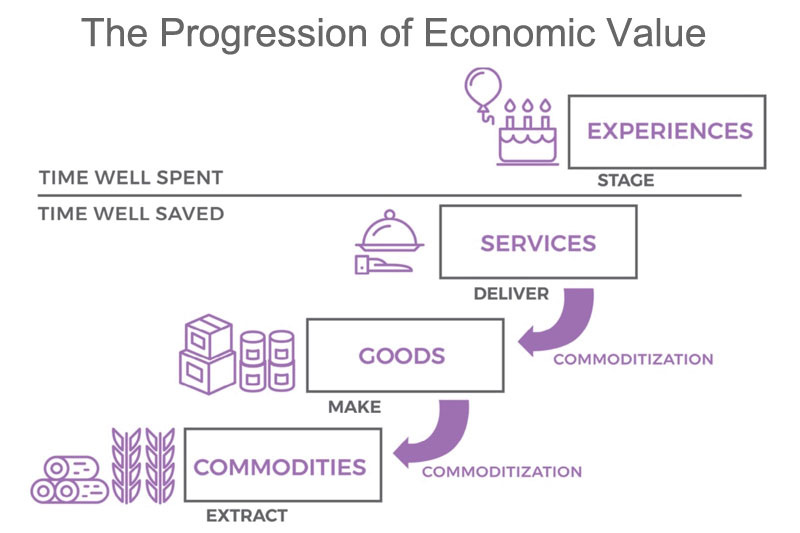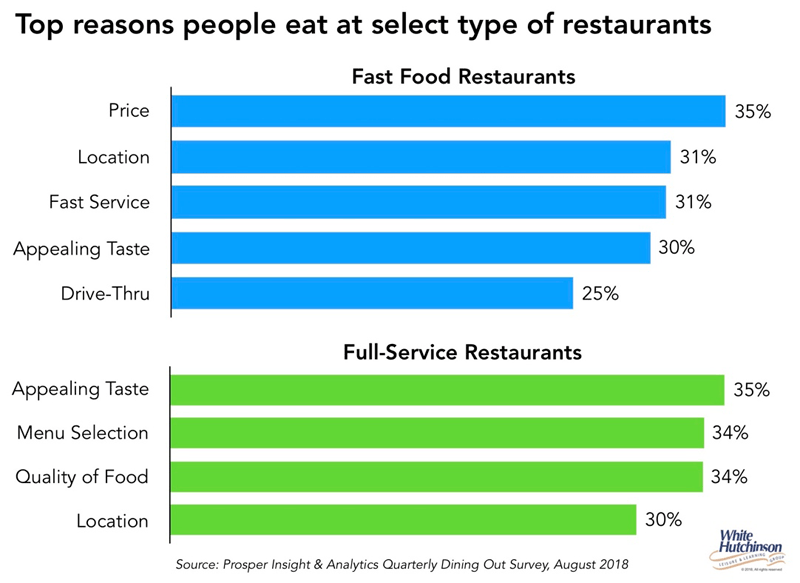
Vol. XVIII, No. 8, September 2018
- Editor's corner
- A snapshot at out-of-home 'entertainments' True Reality
- College educated women delaying motherhood
- It's time to kill the FEC Industry (name)
- American's pizza obsession
- Holey Moley, it's a mini golf cocktail bar
- What's happening with at-home and mobile screen video game play?
- Is your center Snapchat geofenced?
- Time saved, or time well spent?
- Decline in births now equals the drop during the Great Depression
- What matters, income or education?
Time saved, or time well spent?
Joe Pine, co-author of the Experience Economy book, in one of his recent white papers discusses how time is the key distinction between services and experiences in the Progression of Economic Value. Joe says, “Services are about time well saved while experiences are about time well spent. To stage a true distinctive experience, you have to get customers to value the time they spend with you.

from: It's The Experience Economy , Stupid... by B. Joseph Pine II
As we've been discussing in many of our articles, the decision to leave home and visit a particular leisure venue is more about the use of discretionary leisure time then it is about spending discretionary money. In our time-pressed culture, the last thing people want to do is waste their leisure time. It's for that reason we see a trend of people choosing premium, higher fidelity experiences when they do go out, even if they cost a premium in price, to make sure it is worth their time. For higher socioeconomic consumers, who are the vast majority of the out-of-home leisure/entertainment venue market and are the most time stressed, their time is more valuable than their money. Better to part with more money to be assured of gaining the maximum value and enjoyment for, as Joe says, “time well spent.”
A recent survey by Prosper Insight & Analytics on the reasons people pick particular restaurants is a good illustration of the difference of services being time well saved versus experiences being time well spent.

With the fast food restaurants, it's primarily about convenience (time) with factors such as location, fast service and drive-thru. So, with the experience having low value, low price also becomes a significant factor.
Full-service restaurants are a completely different story, as they are about the quality of the experience. Price isn't even among the top five reasons, as an experience at a full-service restaurant is about time well spent.
Too many operators in the location-based leisure industry, including the many types of community leisure venues (CLVs) and family entertainment centers (FECs), believe price is a way to be competitive. Focusing on price means they don't understand the basic consumer equation for visiting. It's about the value of the experience - will it be time well spent considering how little time people feel they have to invest and how many options they have? If it is time well spent, consumers will gladly pay the price. As Joe Pine says, “Experiences that engage and fascinate, absorb and immerse, and leave lasting memories” drive demand.
Additional reading about the impact of time:
Vol. XVIII, No. 8, September 2018
- Editor's corner
- A snapshot at out-of-home 'entertainments' True Reality
- College educated women delaying motherhood
- It's time to kill the FEC Industry (name)
- American's pizza obsession
- Holey Moley, it's a mini golf cocktail bar
- What's happening with at-home and mobile screen video game play?
- Is your center Snapchat geofenced?
- Time saved, or time well spent?
- Decline in births now equals the drop during the Great Depression
- What matters, income or education?


